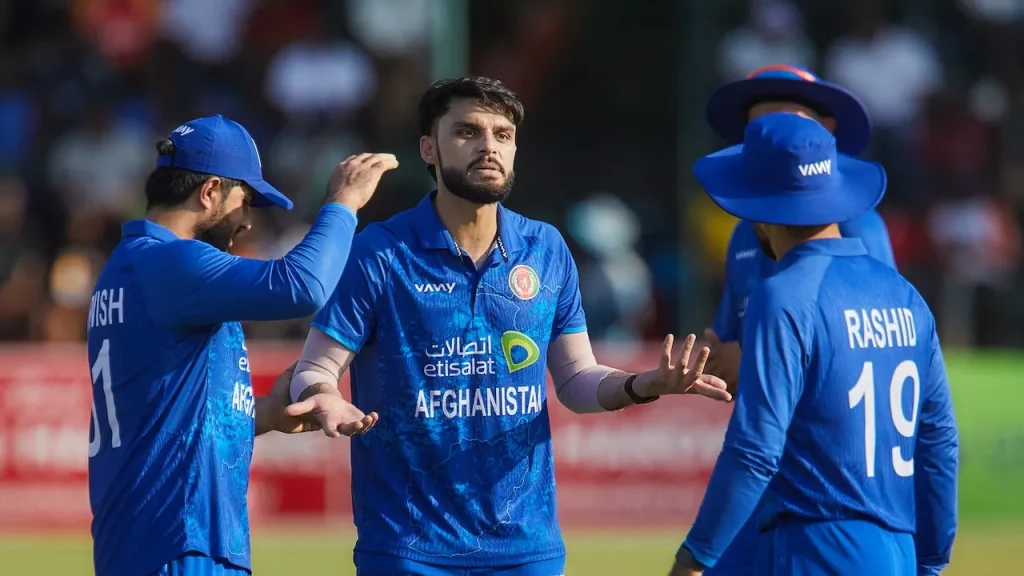The upcoming cricket match between England and Afghanistan in the ICC Champions Trophy has ignited a fierce debate surrounding human rights and the role of sports in international relations. Women’s rights activists, spearheaded by the Women’s Rights Network (WRN), have vehemently called for England to forfeit the match in protest against the Taliban’s egregious human rights abuses, particularly the systematic oppression of women and girls in Afghanistan. The WRN’s demands extend beyond a single match, urging a complete boycott of all sporting events involving Afghan national teams until the Taliban demonstrates a commitment to respecting fundamental human rights. This call for a boycott reflects a growing sentiment that sporting engagements should not proceed as normal while such grave human rights violations persist. The controversy underscores the complex interplay between sports, politics, and morality, raising fundamental questions about the responsibilities of sporting bodies and individual athletes in the face of oppression.
The central argument for the boycott centers on the Taliban’s severe restrictions on women’s freedoms in Afghanistan. Since their takeover in August 2021, the Taliban has implemented a regressive interpretation of Islamic law, effectively relegating women to second-class status. Women are prohibited from participating in public life unless accompanied by a male relative, their access to education has been drastically curtailed, and their voices have been silenced. The WRN emphasizes the stark contrast between the freedoms enjoyed by women in countries like England and the oppressive conditions faced by Afghan women, urging English cricketers to consider the moral implications of engaging in sporting competition with a regime that denies women their basic human rights. This moral imperative, the WRN argues, transcends sporting considerations and demands a principled stance against injustice.
The Taliban’s ascent to power in Afghanistan followed the withdrawal of US troops in 2021, a move that has been heavily criticized for its chaotic execution and devastating consequences. The withdrawal led to the swift collapse of the Afghan government and the imposition of the Taliban’s draconian rule. The subsequent economic downturn and the humanitarian crisis have further exacerbated the plight of Afghan citizens, particularly women and girls. The international community’s response has been largely focused on providing humanitarian aid, but there is a growing recognition that more decisive action is needed to address the root causes of the crisis, including the Taliban’s disregard for human rights.
The WRN’s call for a boycott has gained traction among human rights advocates who argue that engaging with the Taliban through sports legitimizes their regime and provides them with a platform for international recognition. They contend that sporting events, often imbued with national pride and international attention, should not be used to normalize or condone oppressive regimes. Boycotts, they argue, can serve as a powerful tool for exerting pressure on such regimes and raising awareness about human rights abuses. This stance aligns with the broader principle that sports should not be divorced from social and political considerations, and that athletes and sporting organizations have a responsibility to uphold human rights values.
However, the issue of boycotting sporting events is complex and multifaceted. Some argue that boycotts can be counterproductive, isolating the Afghan people and depriving them of the few opportunities they have for international engagement. They suggest that engagement through sports could provide a channel for dialogue and potentially influence the Taliban’s behavior. Furthermore, Afghan athletes, particularly cricketers, have expressed concerns that boycotts could jeopardize their careers and further marginalize them from the international sporting community. This perspective emphasizes the importance of finding a balance between upholding human rights principles and avoiding actions that could harm the Afghan people.
The decision facing the England cricket team and other sporting bodies is not an easy one. It requires careful consideration of the ethical implications of engaging with the Taliban regime, the potential impact on the Afghan people, and the effectiveness of boycotts as a tool for promoting human rights. Ultimately, the question revolves around whether sporting events should be viewed solely as apolitical competitions or as opportunities to uphold fundamental human values. The debate surrounding the England-Afghanistan cricket match highlights the growing recognition that sports and politics are inextricably linked, and that athletes and sporting organizations have a role to play in advocating for human rights and social justice.

